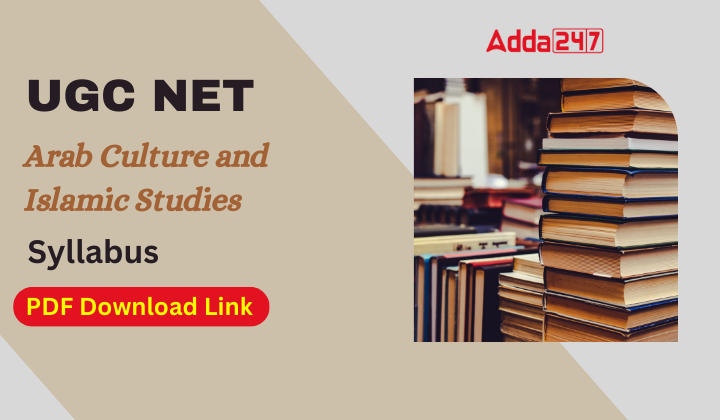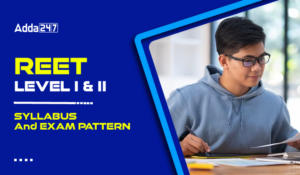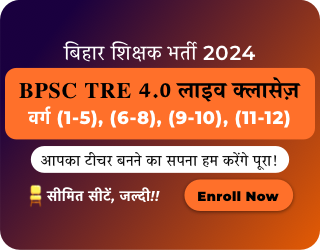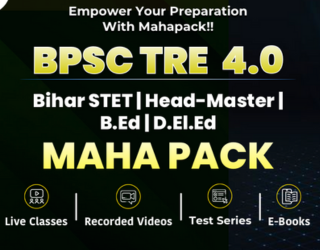Table of Contents
The UGC National Eligibility Test is being scheduled by NTA for the 1st week of January 2025. The candidates must prepare and structure their exam strategies by checking their syllabus for the concerned subject. Candidates with Arab Culture and Islamic Studies as the main domain can easily access the UGC NET Arab Culture and Islamic Studies Syllabus on the official UGC website. The UGC NET Exam will be conducted in Computer-Based Test (CBT) mode.
To aid candidates in their exam preparation, we have attached the comprehensive UGC NET Arab Culture and Islamic Studies Syllabus subject-wise. Let’s delve into the significant topics and explore the detailed syllabus provided in the NET Arab Culture and Islamic Studies Syllabus PDF.
UGC NET Arab Culture and Islamic Studies Syllabus- Overview
The UGC NET Arab Culture and Islamic Studies Syllabus for the UGC NET Exam Syllabus will be available in this article and candidates can check the detailed topic-wise syllabus here. The NET Islamic Studies and Arab Culture exam will be held in 2 papers which have been explained below table :
| UGC NET Arab Culture and Islamic Studies Syllabus | |
| Name of the Exam | National Eligibility Test (NET) |
| Conducting Body | National Testing Agency (NTA) |
| Subject | Arab Culture and Islamic Studies |
| Mode of Examination | Online |
| Type of Questions | Multiple Choice Questions (MCQs) |
| Number of Papers |
|
| Total Marks | Paper 1 – 100,Paper 2- 200 |
| Number of Questions | Paper 1 – 50,Paper 2- 100 i.e. 150 |
| Time Duration | 3 hours |
| Negative Marking | No |
UGC NET Arab Culture and Islamic Studies Syllabus: Important Topics
Arab Culture and Islamic Studies Subject’s important topics have been explained in this article which will help candidates in UGC NET Exam preparation. Islamic Studies and Arab Culture paper consists of various topics i.e. Pre-Islamic Arabia and Emergence of Islam, Early Islamic Caliphates, Abbasid and Umayyad Periods, Islamic Empires and Dynasties, Islam in India and Modern Trends and so on. Here we are mentioning important topics for Islamic Studies Subjects which will help candidates in Exam Preparation.
- Socio-Religious conditions of pre-Islamic Arabia
- The establishment of the Umayyad dynasty
- The establishment of the Abbasid rule
- The establishment of Umayyad rule in Spain
- Ghaznavids
- Origin and Development of the Ottoman Empire
- The advent of Islam in India (Kerala)
- Collection and compilation of the Quran
- Origin and development of Muslim philosophy
- Muhammad Ali Pasha and his reforms
Topic-Wise UGC NET Arab Culture and Islamic Studies Syllabus
UGC NET Syllabus for Paper 2 will be consisting the subject concerned section i.e. Arab Culture and Islamic Studies. This Topi-wise UGC NET Arab Culture and Islamic Studies Syllabus will explain the examination nature for candidates in the UGC NET Examination.
Unit – I : Emergence of Islam and khilafat-e-rashidah
- Socio-Religious conditions of pre-Islamic Arabia
- Political and Economic condition
- Prophet’s life at Makkah and Madina
- Migration: Importance and implications
- Formation of Islamic State and Society at Madina
- The Prophet(PBUH) as a Law giver, Statesman and Mercy to mankind
- Institution of Khilafat: Importance and relevance
- Consolidation of Arabia under caliph Abu Bakr
- Expansion and administration of Islamic State under Caliph Umar
- Expansion and Political Developments under Caliph Uthman and Caliph Ali
Unit –II : The Umayyads
- The establishment of the Umayyad dynasty
- Prominent rulers
- Prominent Sahabi and Tabaie scholars
- Arabisation of the State
- Social and Economic conditions
- Administration
- Education
- Development of Arabic Language and Literature
- Art and Architecture
- Causes of Decline
Unit –III: The Abbasids
- The establishment of the Abbasid rule
- Prominent rulers
- Prominent Scholars
- Administration
- Socio-Cultural Developments
- Development of Religious sciences
- Education and Educational Institutions
- Development of Arabic Language and Literature
- Art and Architecture
- Trade and Commerce
Unit –IV: The Arabs in Spain and Sicily
- The establishment of Umayyad rule in Spain
- The Conquest of Sicily
- Prominent rulers
- Prominent Scholars and their impact on the west
- Socio-Cultural developments
- Contribution to Science and Literature
- Development of Libraries and Educational Institutions
- Agriculture, Trade and Commerce
- Art and Architecture
- Disintegration of the Empire: Emergence of Small City-State
Unit –V: Dynasties of East and West
- Ghaznavids
- Saljuqs
- Samanids
- Fatimids
- Khwarizmshahs
- Mamluks
- Aghlabids
- Hamadanids
- Idrisids
- Tulunids
Unit VI: The Ottoman and Safavid Empire
- Origin and Development of the Ottoman Empire
- Prominent Ottoman Rulers
- The Ottoman administration and army
- Socio-religious and Educational conditions
- The Ottoman Society
- The Ottomans and the west
- Art and Architecture
- The Ottoman decline: causes
- Origin and Development of the Safavid Empire
- Shah Ismail and the promotion of Shi´ism
Unit VII: Islam in India
- The advent of Islam in India (Kerala)
- Islam in Sindh: Muhammad bin Qasim’s Administration and Religious Policy
- Establishment of Delhi Sultanate
- Administration during the Sultanate period
- Socio-religious and Educational conditions
- Madaris and their syllabi
- Contribution to Fiqh and Hadith Literature
- The Mughal rule and administration
- Socio-Religious and Educational Scenario during the Mughal Rule
- Contribution to Fiqh and Hadith Literature (Sheikh Ahmad Sirhindi, Shah Waliullah, Sheikh Abdul Haq Muhaddith Dehlvi and others)
Unit – VIII: Islamic Sciences – Tafsir, Hadith and Fiqh
- Collection and compilation of the Quran
- Ethical, Social, Political and Economic teachings of the Quran
- Origin and Development of Tafsir Literature
- Classical Tafsir: Al-Tabari, Al-Razi and Zamakhshari
- Tafsir in the modern age: Tafsir al-Manar, Fi-zilal al-Quran, Bayan al-Quran, Tarjuman al-Quran, Tafhim al-Quran, Tadabbur al-Quran and Tafsir al-Quran
- Origin and Development of Hadith Literature
- Compilation of Hadith Literature
- Riwayah and Dirayah
- Muwatta, Musnad, Sihahe-Sitta and their compilers (authors)
- Origin and Development of Fiqh Literature
Unit – IX: Muslim Philosophy, Sufism and Muslim Contribution to Knowledge
- Origin and development of Muslim philosophy
- Classical Muslim Philosophers: Al-Kindi, Farabi, Ibn-Sina, Al-Ghazzali, Ibne Rushd.
- Qadariyya, Murjiyya, Khawarij, Mutazalites and Asharites
- Origin and development of Sufism
- Prominent Sufis: Hassan al- Basri, Junaid Baghdadi, Ibne-Arabi and Sheikh Ali Hujwiri
- Major Sufi orders: Chishtiyya, Suhrawardiyya, Qadiriyya, Naqshabandiyya
- Muslim contribution to Natural and Social Sciences: Medicine, Mathematics, Astronomy, Historiography, Geography, Chemistry and Botany
- Prominent classical thinkers and scientists Al-Mawardi, Al-Biruni, Ibn-Tayimiyya, Ibn-Khaldun, Ibn al-Baytar, Ibn al-Haytham etc.
Unit – X: Modern Trends, Movements in Islam
- The advent of Western Modernity and Technology in Egypt and India
- Muhammad Ali Pasha and his reforms
- Tanzimat
- Sir Syed and his educational movement
- Modern religious movements: The Wahabiyya, the Sokoto and Faraizi movement
- Shah Waliullah and his movement
- Syed Ahmad Shaheed and his movement
- Ikhwan al-Muslimun and Jamaate-Islami
- Young Turk Movement, Nursi Movement
- Arab Nationalism: Abdul Rehman al-Kawakibi
UGC Arab Culture and Islamic Studies Syllabus PDF in Hindi and English
The direct link to download the UGC Arab Culture and Islamic Studies Syllabus PDF in Hindi and English has been given below. Candidates can download Islamic Studies and Arab Culture Syllabus for UGC NET in both languages. All the candidates can prepare with important topics-wise and unit-wise detailed syllabi in the below PDFs. The link to download the UGC NET Arab Culture and Islamic Studies Syllabus PDF has been given below:
| Download UGC NET Arab Culture and Islamic Studies Syllabus PDF in Hindi and English | |
| Language | Download PDF |
| English | Download PDF |
| Hindi | Download PDF |
Preparation Tips for UGC NET Arab Culture and Islamic Studies Syllabus
- Work on your weaker areas- Many aspirants tend to leave their weaker topics with the fear of never getting it right. Candidates must solve quizzes daily from the weaker topics.
- Analyze your Preparation- Candidates should analyze their performance by taking up mock tests or solving questions bank.
- Learn from Online classes And Available Study Material
- Practice daily with the help of quizzes and mock tests. Attempt daily subject-wise quizzes and mock tests available on Adda247 store.
- Follow a proper study plan with a subject-wise strategy
- Do not overburden yourself. Take short breaks in between your study schedule.
- You can use diagrams and charts for an easier understanding of a concept.
- As there is no negative marking or sectional cutoff in the NTA NET examination, focus on maximizing your score by improving accuracy and speed.




 RRB Teacher Syllabus 2024 For TGT PGT an...
RRB Teacher Syllabus 2024 For TGT PGT an...
 REET Syllabus 2025 for Levels 1 and 2, D...
REET Syllabus 2025 for Levels 1 and 2, D...
 UGC NET Rajasthani Syllabus 2024 PDF Dow...
UGC NET Rajasthani Syllabus 2024 PDF Dow...







